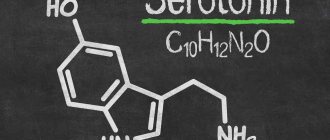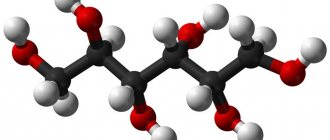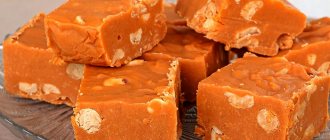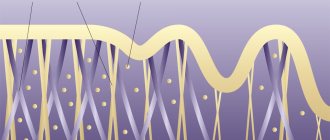Why take L-tryptophan?
L-tryptophan plays a crucial role in improving mood. It is the body that converts this amino acid into serotonin. It is a neurotransmitter that is known as the “happy hormone.” Tryptophan deficiency can lead to erratic mood swings, severe anxiety disorders, and even depression.
If there is a lack of L-tryptophan in the body, it is taken as a dietary supplement. Many people do not get enough of this amino acid from regular foods.
Symptoms of tryptophan deficiency include:
- depression;
- mood changes;
- sleep disturbance;
- sleep apnea;
- anxiety;
- premenstrual syndrome.
A 2010 study examined the effects of L-tryptophan on the incidence of steatohepatitis , a form of liver disease. The study was based on the formation of oxidative stress and inflammatory reactions. After just four weeks, study participants who took the special supplement every day had improvements in triglyceride levels and available inflammatory cytokines.
In addition, this essential amino acid has a positive effect on irritable bowel syndrome (IBS). The less L-tryptophan in the body, the more severe the symptoms of this condition. Therefore, L-tryptophan is useful in reducing the severity of irritable bowel syndrome.
Should I take it?
The need to take hydroxytryptophan as a supplement is due, on the one hand, to its beneficial effects of improving sleep quality and accelerating recovery from exercise, as well as suppressing appetite. On the other hand, the source of 5htp is tryptophan, which is an essential amino acid and must be supplied from food from outside. In some cases, the body may not have enough tryptophan, so symptoms of anxiety, a gloomy irritable state, and restlessness increase, which can reduce the effectiveness of training and the overall quality of life.
Is L-tryptophan safe?
Based on data from the FDA (Food and Drug Administration - an agency of the US Department of Health and Human Services), consuming this amino acid as a dietary supplement is absolutely safe.
In 1989, a Japanese tryptophan manufacturer used an unsafe process to purify it, increasing contamination levels. The contaminated batch caused a serious condition known as eosinophilia-myalgia syndrome (EMS). This is a rare autoimmune disease that causes fever, numbness, and a rash. In severe cases it can lead to death.
This has led to FDA restrictions on the import of dietary supplements. In 2001, the FDA relaxed its restrictions because unsafe processes used in the past were identified and stopped. Now, this amino acid is produced in a completely safe way. There is absolutely no harm in consuming it if you follow the instructions on the label.
Tryptophan or 5-HTP? What's better?
Our bodies naturally convert tryptophan into melatonin and serotonin. Part of the process involves converting it first to 5-hydroxytryptophan , or 5-HTP .
5-HTP is produced in the body, but when used as a supplement, it is obtained from the African shrub Griffonia Simplicifolia. Low levels of serotonin are associated with sleep disturbances, depression, weight gain, and increased anxiety.
5-Hydroxytryptophan (5-HTP) is a byproduct of the amino acid L-tryptophan and a neurotransmitter precursor, used to increase serotonin production, reduce stress, and suppress appetite. Because of this process, many people have a dilemma about which supplement is better to choose.
If taking tryptophan does not have a positive effect on your body, consider using a 5-HTP supplement. 5-HTP acts faster than the amino acid l-tryptophan.
Beneficial effects
From a review of the metabolic transformations of tryptophan and 5htp, it becomes clear that 5htp or 5 hydroxy-L-tryptophan acts by increasing the production of serotonin and subsequently melatonin.
Serotonin is an important neurotransmitter and also has many other functions. Its effects include lowering the pain threshold, regulating neuromuscular interaction and vascular tone, increasing prolactin secretion, suppressing appetite and much more.
A natural surge in the production of serotonin under the influence of sunlight and vitamin D is responsible for a good mood on sunny, clear days and, accordingly, a depressed mood in the autumn-winter period due to a decrease in serotonin synthesis.
Another part of the effects of 5 htp is due to the processing of serotonin into melatonin. The sleep hormone reduces physiological activity, makes it easier to fall asleep, thus helping the nervous system and other body systems recover faster. Melatonin also has antioxidant, antitumor, immunostimulating and anti-stress effects.
L-tryptophan or melatonin?
New results show that tryptophan improves sleep quality. It keeps serotonin levels high throughout the day. As a result, sufficient melatonin can be produced from serotonin at night. This hormone significantly affects the sleep cycle and is essential for restful sleep. Therefore, low concentrations of L-tryptophan can cause insomnia and significantly worsen overall health.
Because our bodies use this amino acid to produce melatonin , many people report similar effects from both supplements. If the main cause is a lack of this amino acid, and not another problem related to the production of melatonin, this dietary supplement is suitable for you. Before using melatonin, consult your doctor.
Side effects of L-tryptophan:
- increased sweating;
- strong heartbeat;
- nausea;
- muscle tension;
- visual impairment;
- headache;
- drowsiness or fatigue;
- dizziness.
5-Hydroxytryptophan (5-HTP) is an amino acid precursor serotonin with antidepressant benefits, reducing restlessness, anxiety, improving sleep and aiding in weight loss, but with some caveats. Read this post to learn more about the proven health benefits and risks of taking 5-HTP.
5-HTP Dosage for Men and Women
Since 5-HTP is a more biologically available supplement than L-tryptophan, the dosages are slightly lower.
- If you have a loss of energy or a bad mood, then the dosage is only 50-100 mg, 2-3 times a day, in the morning, with meals. In order to feel the effects of the drug, you must take it for at least a week.
- If you need to normalize sleep, then take 5-HTP once, 30 minutes before bedtime, in a dosage of 100 mg.
- To suppress appetite, if you want to lose weight, take 250 mg approximately 30 minutes before meals.
What is 5-HTP?
5-hydroxytryptophan (5-HTP) is an amino acid that serves as a precursor for the biosynthesis of serotonin and melatonin in the brain from the amino acid tryptophan. Serotonin plays an important role in the body, especially as a neurotransmitter for transmitting signals between neurons in the nervous system.
Depression is now believed to be caused (at least in part) by low levels of serotonin in the brain, but what exactly causes depression is still not fully understood [1, 2].
To make the supplement, 5-HTP is extracted from the seeds of the Griffonia simplicifolia plant, a woody climbing shrub native to West and Central Africa in the legume family.
My impressions of using 5-HTP
I have been using this supplement relatively recently. I only tried it this summer 2021.
I noticed sensations from its use after about 2 weeks.
- I became calmer. I can handle stress much easier. It's harder to lose your temper.
- I don’t consider myself a depressed person anyway, but periods of good mood began to “roll” more often.
- Erection. It's difficult to explain, because... There are no problems with her anyway, but some new sensations have appeared. The blood flow is even better, the desire to do “this” more often, etc. I think the effect is good =)
- Sleep has become much better. Sometimes you get overexcited, overworked, a lot of things pile up, and insomnia sets in. This has never happened before with this supplement. The sleep is very deep. It is very difficult to wake up) I began to sleep very well. This also adds to the mood.
Dosage per capsule: 100 mg 5-HTP. This is a very good dosage. In our pharmacies I only saw a dosage of 50 mg, but it was much more expensive.
Dosage: 1 capsule per day for prevention (if you are in a depressed mood, you can drink 2-3 capsules per day).
Time of administration: I drink it in the morning during breakfast. I do this to correct my mood. Or you can drink before bed (for even better sleep).
I bought it at a very good price here. I have never seen it cheaper anywhere!
I often order supplements from this site. So far everything is good. Fast delivery, excellent quality, working dietary supplements. If I find something even better, I will definitely tell you.
And so, for now there is no better price, and, probably, there is no offer anywhere.
What are the health benefits of 5-HTP?
Fights depression
The antidepressant effect of 5-HTP is comparable to that of some antidepressants [6].
Combination treatment with 5-HTP and SSRIs (selective serotonin reuptake inhibitors) appears to have a strong synergistic effect on serotonin levels in humans and rats. Therefore, some doctors recommend using slow-release 5-HTP in combination with an SSRI. However, additional clinical trials are needed to demonstrate the safety and effectiveness of this approach. Combinations of 5-HTP and medications should only be used under medical supervision [7, 8, 9].
In a small clinical study of 52 healthy men, 5-HTP and SSRIs increased serotonin levels by 35% and 100%, respectively. However, together they increased serotonin by 500% [8].
Small clinical studies have shown that 5-HTP relieves depression better than placebo. However, larger and higher quality studies are needed to confirm the safety and effectiveness of 5-HTP [5].
Tryptophan and 5-HTP: What are the benefits and what is the difference?
Many people have heard that we need tryptophan for health. It is often advised to start taking it if you have problems sleeping or have had a prolonged period of so-so mood, but there are also some misconceptions associated with it, which only multiply when the advice “it’s better to take 5-HTP” comes into play. Let's take a closer look at what it really is.
Tryptophan is an amino acid that is classified as essential. This means that we can only get it from food, and, alas, we won’t be able to produce it ourselves. This amino acid produces two hormones that are important for well-being and health - melatonin and serotonin. The first, as we know, plays a direct role in the quality of sleep - it is melatonin that is responsible for ensuring that we not only sleep soundly, but also really rest well and recover during this time. When specialists, at any opportunity, start a boring hurray about the need to restore sleep and pay special attention to it, go to bed on time (and this is before 23:00 or better before), try to turn off any light and loud sounds, ventilate the room, and so on Further, they are not exaggerating at all.
A lack of melatonin threatens a whole mountain of serious problems, including accelerated aging processes, the approach of menopause in women, faster damage to cells by free radicals, decreased sensitivity to insulin (that is, insulin resistance), obesity, type II diabetes, and even an increased risk of cancer. Simply put, how and how long we live depends on the quality of sleep and the amount of melatonin. Melatonin regulates circadian rhythms in all living organisms, that is, it is responsible for the cycles according to which body systems operate during the day and night. In short, melatonin is very good.
Next is serotonin . There are hardly any people who have never heard of the fact that serotonin is the “hormone of joy.” This, of course, is a strong simplification, but it’s also difficult to call it a lie: it is serotonin that regulates mood and, in sufficient quantities, protects a person from depression (and in insufficient quantities often leads to its development or at least creates the most favorable conditions for this). Strictly speaking, serotonin is not exactly a hormone, but a neurotransmitter, that is, an intermediary between neurons or between neurons and tissues. This is precisely the role it plays in the brain, but it becomes a hormone when it enters the bloodstream. Other neurotransmitters are, for example, adrenaline, norepinephrine, dopamine and histamine - these are the ones that are more commonly known, in general there are, of course, much more of them. So, it is precisely as a neurotransmitter that serotonin performs a huge number of important functions and affects many processes in almost all body systems - from motor to endocrine.
Is it worth emphasizing that a lack of serotonin is no less harmful than a lack of melatonin? At the same time, if you can increase the amount of melatonin from the outside - for example, by taking supplements, then serotonin in tablets, alas, does not exist; it is produced by the body from the amino acid - that same tryptophan. For obvious deficiencies and depressive states, so-called SSRIs are prescribed - selective serotonin reuptake inhibitors (have you heard of Prozac? That's it). In human terms, these are substances that help capture serotonin and “circulate” it again - figuratively, they force the same serotonin to work in several shifts due to a shortage of employees. A less critical deficiency can be eliminated with the help of tryptophan - by supplementing the diet with foods rich in it, dietary supplements and, of course, good quality sleep on an ongoing basis.
What does 5-HTP ? And here's what it has to do with it. This amino acid - its name stands for 5-Hydroxytryptophan - plays an important role in the melatonin-serotonin chain, being the so-called serotonin precursor, that is, its predecessor, from which serotonin is already produced. Having completed its important tasks, after a couple of transformations it becomes melatonin. It turns out that 5-HTP is closer to serotonin, which means it’s better to simply take a supplement with this amino acid than to indulge in a tryptophan-rich diet. Yes and no. Indeed, 5-HTP is the next stage in the chain, closer to serotonin and, accordingly, to melatonin. In addition, it penetrates the blood-brain barrier of the brain more easily and quickly, and the desired effect is achieved more easily and in a slightly shorter period of time. This is if we are talking about sleep disorders and other problems associated with a lack of serotonin and melatonin.
But here it is necessary to mention that another important microelement is formed from tryptophan - niacin, also known as nicotinic acid or vitamin B3 (and PP). This element is involved in many restoration processes in the body, in the formation of enzymes, lipid-carbohydrate metabolism in cells and a number of other important biochemical mechanisms. The path from tryptophan to niacin does not pass through 5-HTP, but through completely different transformations - tryptophan can be figuratively imagined as that very stone at the crossroads in Russian fairy tales: if you go to the right, you will come to serotonin, if you go to the left, you will come to niacin. Therefore, before you grab a bottle of pills, you might still want to try increasing the amount of foods rich in this amino acid in your diet.
The absolute record holder here is caviar. Any, but red and black in particular (who would doubt it). Further in descending order are: peanuts, almonds and cashews, high-quality hard and semi-hard cheese, soybeans and pine nuts, poultry and rabbit meat, red meat, eggs, fatty fish, fatty cottage cheese, peas and beans, mushrooms. There is a lot of it in dark chocolate. In general, there is no need to be afraid of its lack in nutrition on the LCHF/keto diet. There is a funny misconception that post-Thanksgiving dinner sleepiness is due to the traditional turkey, which is rich in tryptophan. It is converted into melatonin and voila - you want to sleep! This, however, is a big exaggeration: turkey does contain a lot of tryptophan, as does other poultry meat, as well as rabbits and red meat from large animals, but after a steak you won’t fall asleep at the table. In fact, on Thanksgiving, like many other holidays in the world, people tend not only to overeat, but also to do so with large amounts of carbohydrate foods. This will make anyone sleepy even without any tryptophan.
It is worth noting that supplements with tryptophan and 5-HTP are sold without a prescription almost everywhere - a more or less healthy body without serious disorders will remove the excess if it suddenly happens to greatly exceed the dose (this does not negate the fact that it is still better to discuss any medications first with a doctor you trust). It is recommended to take them in the evening or at night, as they can slightly relax and lead to drowsiness (always for me). Neither tryptophan, nor 5-HTP, nor melatonin are sleep aids - the latter, for example, “will not work” if you sit in front of a TV or computer screen, or try to induce sleep under a bright lamp light. Moreover, this applies to our “native” melatonin, and taken in the form of a tablet - if it seems to the brain that it is daytime, melatonin triggers daytime processes. Hence the exhortations of experts not only to go to bed on time, but also to turn off the lights, give up gadgets and draw the curtains more tightly if there is city illumination outside the window.
For those who are interested, I periodically take either melatonin or 5-HTP - during periods of stress, increased workload, after flights, and so on. At one time, when I started going to a psychotherapist, I found out that I am sometimes prone to “serotonin pits” - there are many such people. I learned to recognize these periods (as a rule, you begin to feel apathy, powerlessness, lack of inspiration and energy, reluctance to do what you actually love to do) and use 5-HTP for a while. If in general everything is fine with you, but you are “somehow sad” or suffer from insomnia, you can try. For several years now I have been choosing these jars, which I order on Iherb (clickable):
- Now Foods Brand 5-HTP
- Fast-acting melatonin drops (minus - they are sweet due to the sahzam in the composition, I wash them down)
- Melatonin capsules 3 mg brand Now Foods
- Melatonin capsules 3 mg brand Natrol
- Melatonin with valerian capsules
If you suspect you have a depressive state, do not experiment, go to a specialist, and not a psychologist, but a person with a medical education in the field of psychiatry. This is not scary at all and very important!
5-HTP Supplements
Dosage
200 mg is safe and beneficial for increasing serotonin levels in the brain, although some studies have shown safety and effectiveness when doses are titrated up to 3 g per day [5]. Higher doses increase the likelihood of side effects.
In obesity treatment and weight loss studies, up to 900 mg or 8 mg/kg body weight of 5-HTP was safely used over 2 weeks, although side effects of nausea and vomiting were reported [16].
Absorption and excretion of 5-HTP
5-HTP is rapidly absorbed in the upper intestine, with 50% of 5-HTP absorbed after 1.5 hours. Elimination of 5-HTP also occurs rapidly [30].
Due to the rapid pharmacokinetics of 5-HTP, slow-release 5-HTP may be more beneficial in maintaining serotonin levels in the brain [9].
About 70% of ingested 5-HTP enters the bloodstream [31].
Patients who take 5-hydroxytryptophan have significantly reduced P450 expression levels [32].
Risks and Side Effects of Using 5-HTP
May cause nausea and vomiting
Because serotonin in the digestive system controls intestinal motility, all interventions that increase serotonin levels, including 5-HTP supplementation and SSRI antidepressants, can cause nausea, vomiting, and diarrhea.
The most common side effects of 5-HTP in all human clinical trials are nausea and vomiting, as the rapid release of serotonin throughout the body is not well tolerated (33, 34).
Slow-release 5-HTP may be better tolerated and less likely to cause side effects [9].
May deplete dopamine, norepinephrine and epinephrine
When there is too much 5-HTP, it reduces dopamine synthesis by suppressing the AAAD enzyme through competitive inhibition, resulting in the depletion of dopamine, norepinephrine and other neurotransmitters [35].
Long-term use of 5-HTP can cause an imbalance of these neurotransmitters . It is therefore recommended that 5-HTP supplementation be supervised by qualified clinicians and balanced with neurotransmitter precursors [35].
As the dose of 5-HTP increases, the activity of the MAO gene increases. When this happens, MAO can break down dopamine and cause it to decrease [35].
Serotonin syndrome
5-HTP is freely converted to serotonin without biochemical feedback inhibition. When infinitely large amounts of 5-HTP are administered, it is theoretically possible to achieve extremely high levels of serotonin. One limiting factor is the presence of the enzyme aromatic amino acid decarboxylase (AAAD), which converts 5-HTP to serotonin [35].
Serotonin syndrome explains a range of symptoms caused by very high levels of serotonin, which can be life-threatening [36].
Mild symptoms of overdose include shaking, sweating, tremors, restless limbs, and headache. Severe symptoms include hypertension, fever, mania, hallucinations and ataxia [37].
Serotonin syndrome is almost exclusively caused by combinations of SSRIs and MAOIs causing excessive levels of serotonin in the brain [9].
Eosinophilia-myalgia syndrome
Eosinophilia-myalgia syndrome is a disease that causes severe, disabling, chronic muscle pain, skin symptoms, and other neurotoxic reactions that has affected more than 1,500 people and resulted in at least 38 deaths. The FDA has estimated that there are 10 cases of eosinophilia-myalgia syndrome associated with 5-HTP worldwide [39].
It seems more likely that this is caused by bacterial contamination in the supplement than by tryptophan or 5-HTP itself. Since 1990, there have been no new cases of eosinophilia-myalgia syndrome associated with 5-HTP supplementation [40].
Other side effects
Other rare side effects of 5-HTP include hypomania, lightheadedness, headache, and increased heart rate [41, 38].










